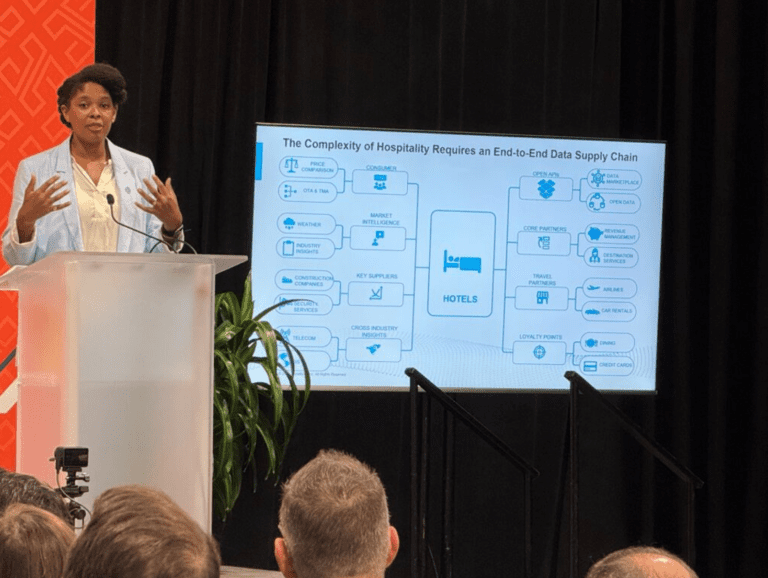 Artificial intelligence is revolutionizing not only traditional sectors but also reshaping the very essence of hospitality and service industries. The potential for transformation is vast, yet it’s imperative to advance cautiously, striking a delicate balance between technological advancement and preserving the human touch, which remains the cornerstone of the service sector. As we navigate this paradigm shift, let’s try to understand the boundaries and challenges of AI application and adhere to strategic investment guidelines. Doing so not only unlocks the boundless potential AI holds but also addresses the legitimate concerns facing many stakeholders in these industries.
Artificial intelligence is revolutionizing not only traditional sectors but also reshaping the very essence of hospitality and service industries. The potential for transformation is vast, yet it’s imperative to advance cautiously, striking a delicate balance between technological advancement and preserving the human touch, which remains the cornerstone of the service sector. As we navigate this paradigm shift, let’s try to understand the boundaries and challenges of AI application and adhere to strategic investment guidelines. Doing so not only unlocks the boundless potential AI holds but also addresses the legitimate concerns facing many stakeholders in these industries.
Impact of artificial intelligence on jobs in the service sector and organizational dynamics
The global service sector, commanding a formidable two-thirds of the global gross domestic product (GDP), stands as an undeniable driver of economic growth. Current OECD data accentuates its prowess, with three-quarters of direct investment gravitating towards this sector and is emerging as a linchpin for job creation. Despite these achievements, the rise of AI poses distinctive challenges and concerns, prompting a critical assessment of why and how service organizations should address this technology within the overarching frameowrk of digitalization.
As organizations evaluate how to integrate AI into their operations, managers find themselves at the forefront of addressing uncertainties about job displacement and the human touch factor, which is at the heart of service as we know it. Contrary to prevailing apprehensions, this article advocates viewing AI not as a threat but as a strategic ally, offering a host of benefits for both organizational efficiency and the human workforce.
Unleashing the power of artificial intelligence: The managerial imperative
The managerial imperative emerges in the face of AI’s disruptive potential. Organizations must strategically align their investments with the digitalization process to harness AI’s transformative capabilities effectively. This requires a keen understanding of AI’s projected economic contributions and efficiency gains, as well as a pragmatic assessment of its potential impact on organizational dynamics.
Projections forecast AI’s potential to contribute a staggering $15 trillion to the global economy by 2030, concurrently delivering an anticipated 30% efficiency gain in the global service industries. While AI’s potential is immense, its realization in solving customer problems and delivering added value remains a managerial focal point. Surprisingly, as of 2019, only one in ten companies managed to leverage AI effectively for these purposes. Managers are thus tasked with navigating this landscape, ensuring that AI investments translate into tangible benefits for both the organization and its clientele.
Artificial intelligence
- is expected to account for 15 trillion of the global economy by 2030.
- will enable 30 percent savings in the global service industries.
- accounts for over 500 companies, over 200 investors and over 50 non-profit hubs in Switzerland alone.
Addressing uncertainties: How to use AI as an ally, not a threat
Contrary to prevalent uncertainties and apprehensions regarding job displacement, embracing AI as an ally reveals many benefits. These include the automation of routine or “low-value” tasks, enabling human employees to redirect their focus towards strategic and creative pursuits. Furthermore, AI allows for increased investments in the social aspect, such as mentoring initiatives and empathetic leadership skill development.
Still, industries with a pronounced focus on human interaction, such as hospitality, need a delicate balance between AI and human involvement. Successful integration demands multiple types of interactions and feedback loops between humans and AI, collaborative learning initiatives, and comprehensive consideration of emotional, mental, social and privacy factors.
Further, a nuanced understanding of AI’s limitations is essential in today’s dynamic landscape. Persistent ethical, legal and social challenges demand strategic managerial responses. The case of Amazon’s AI-driven recruitment tool, inadvertently discriminating against women due to biased datasets, serves as a poignant reminder that AI, while a valuable asset, cannot fully supplant the human touch. This underscores the irreplaceable role of human-centric positions, especially in sensitive areas such as recruitment.
Unlocking value through AI: Emphasizing the human element
Amidst the marvels of algorithms and technological advancements, the true key to unlocking added value through AI lies in emphasizing the human element. AI should be viewed as a complementary tool rather than a wholesale substitute for human capabilities. Managers play a major role in prioritizing the education and qualification of employees, ensuring they are equipped to collaborate effectively with AI.
Ethical AI practices must be championed to promote a symbiotic relationship between humans and technology. In this era of technological advancement, the celebration of the ‘human touch’ becomes paramount, embodying progress with empathy and ensuring a harmonious integration of AI into the fabric of organizational culture.
Authored by:
Associate Professor of Entrepreneurship and Strategic Management at EHL


 Dr Nicole Hinrichs
Dr Nicole Hinrichs
















